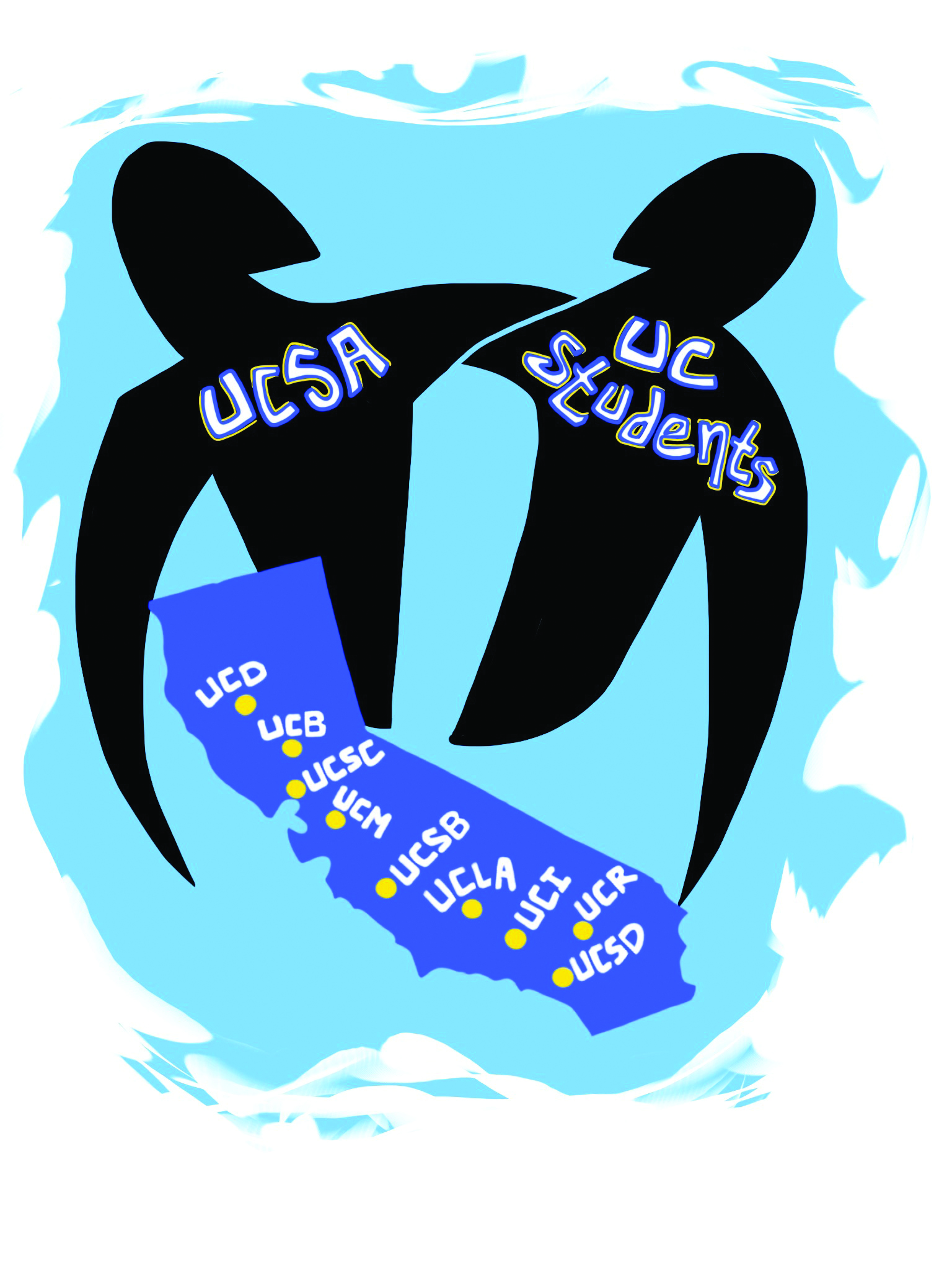Katie Shepherd: Collective student voice needed in UC advocacy issues

1
By Daily Bruin Staff
April 4, 2013 12:26 a.m.
To a UCLA student, the concerns of faraway campuses like UC Berkeley and UC Davis might seem irrelevant to life on our campus. But the fact is, our campuses operate under the same system and are subject to the same budgetary strains that tie the University together in important ways.
These connections can be seen in Gov. Jerry Brown’s 2013-2014 budget proposal for UC funding, which heightens the importance of system-wide unity among students of the 10 UC campuses.
While some aspects of the proposal may have less widespread support than others, students should do their best to understand and take a stance on the issues presented in the budget and demand to be part of the conversation.
Only a miniscule number of students work with organizations that promote system-wide advocacy on each campus. The University of California Student Association serves as the best avenue to unite students on the UC campuses, but it must do more to continue generating student interest and participation even as the UC budget gains some stability.
With the success of Proposition 30 and Gov. Brown’s proposed reinvestment in higher education, tuition hikes or major budget cuts are currently off the table. But understand – this stability is likely temporary.
Student input needs to remain strong even during years without fee increases to ensure that student voice continues to play an active role in discussions of budgetary strain on the UC.
The UCSA exists to facilitate this kind of collective voice for UC students. But despite the presence of UCSA representatives on every UC campus, most students remain unengaged with and unaware of the organization.
Visibility of the group at UCLA needs to be improved in order to engage students who are not already interested in UC advocacy issues.
UCLA’s UCSA members include the Undergraduate Students Association Council external vice president and four additional representatives. The external vice presidents from various campuses and other UCSA members meet once a month to discuss campus issues and campaigns.
UCSA lobbies for important student issues and works with other organizations, such as the Bruin Lobby Corps on UCLA’s campus, to provide students with opportunities and tools for advocating campus, state and national level issues, said Lana Habib El-Farra, USAC external vice president and third-year political science student.
Aside from the conferences and workshops avaiable on UCLA’s campus, students can become involved in advocacy by interacting with UCSA through two different avenues. Students can contact EVP offices with concerns or attend one of UCSA’s board of directors meetings, which are open to UC students, said Hinnaneh Qazi, the 2012-2013 UCSA co-campus organizing director for UCLA and fourth-year political science student.
These options are great for students who are already highly involved in campus issues and advocating for the UC. But students who don’t know as much about issues facing the UC need options to receive information about UCSA and provide their feedback.
The UCSA meetings are typically scheduled for the first weekend of each month, and their locations rotate between the UC campuses to provide every student body the opportunity to engage with the organization. The USAC external vice president’s office should make extra efforts to publicize the meetings’ schedules at UCLA’s campus to encourage greater student representation.
But one must navigate through at least two links after the UCSA homepage to find information concerning the time and location of these meetings. Featuring the upcoming meeting in a more prominent place on the website could result in more students from that campus attending.
The UCSA website is under construction, and while its links and functions are still operational, its unfriendly design hinders access to important information. UCSA hopes to revamp the website to be more modern and accessible, Qazi said.
Admittedly, the UCSA updates its Facebook and Twitter regularly. But only 1,667 Facebook users follow the organization’s Facebook page and a mere 2,020 people follow its Twitter account.
Other methods of distributing information to students include flyering and sending emails via Listservs, said El-Farra. But these approaches are not sufficient. UCSA and UCLA’s USAC external vice president’s office must find other ways to educate students about issues facing the UC in order to generate interest in advocacy.
UCSA should be a vital part of the future conversations concerning the budget. The structure of UCSA allows for all UC campuses to come together as a collective advocate for the interests of the student body.
A collective student voice will strengthen arguments made by students for issues that affect the entire University and will prepare us when budget cuts and fee increases find their way back to the table.

